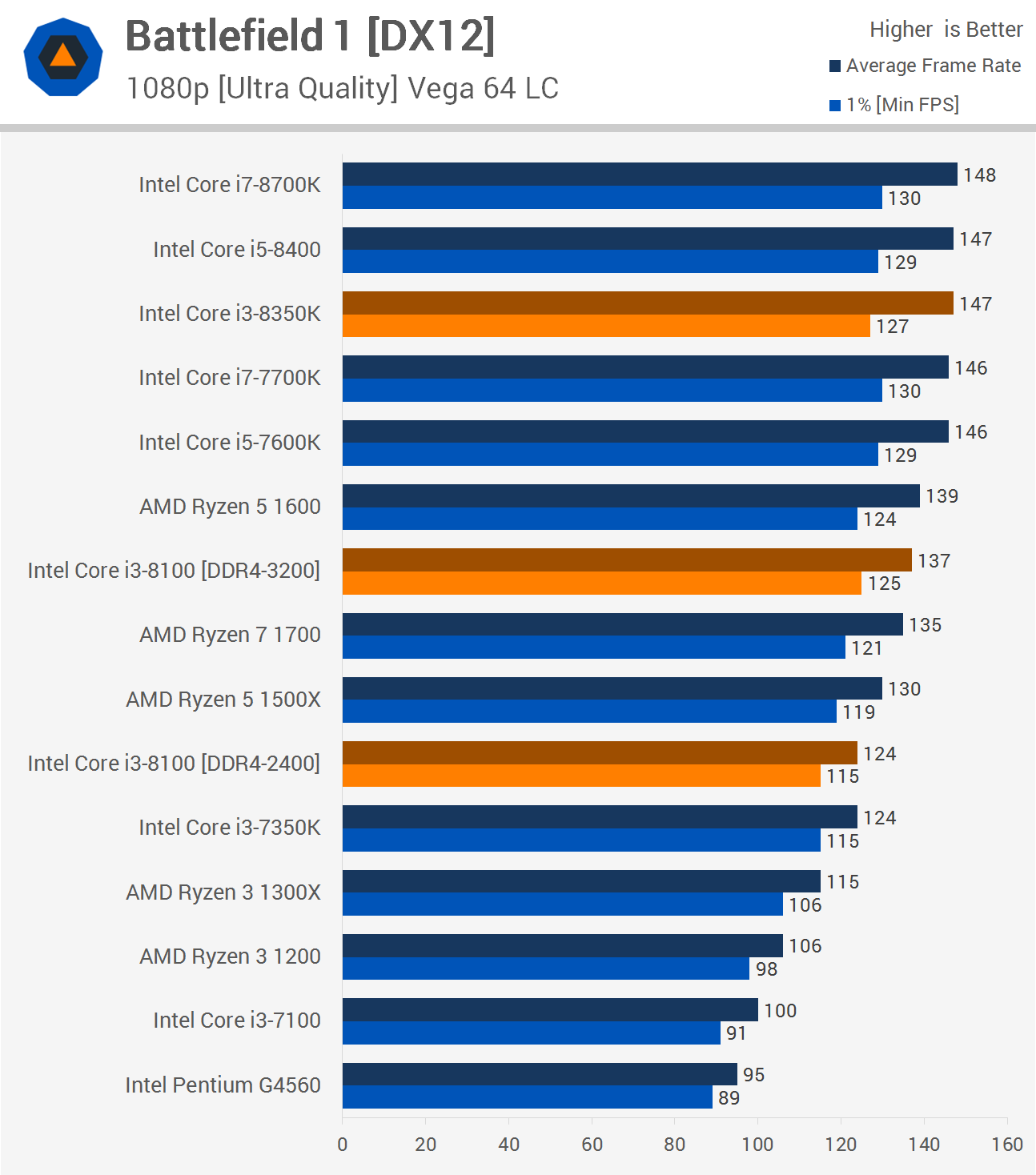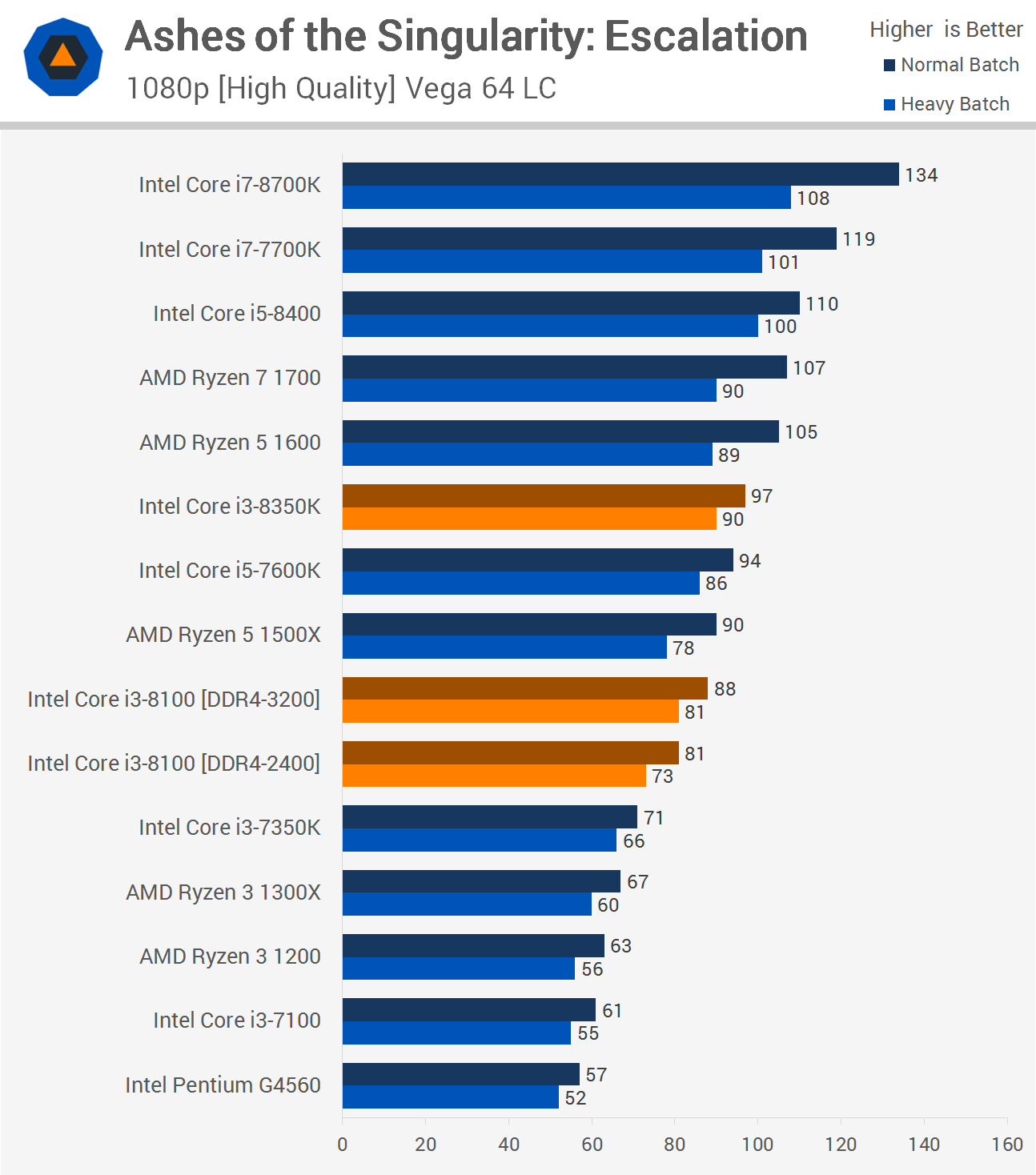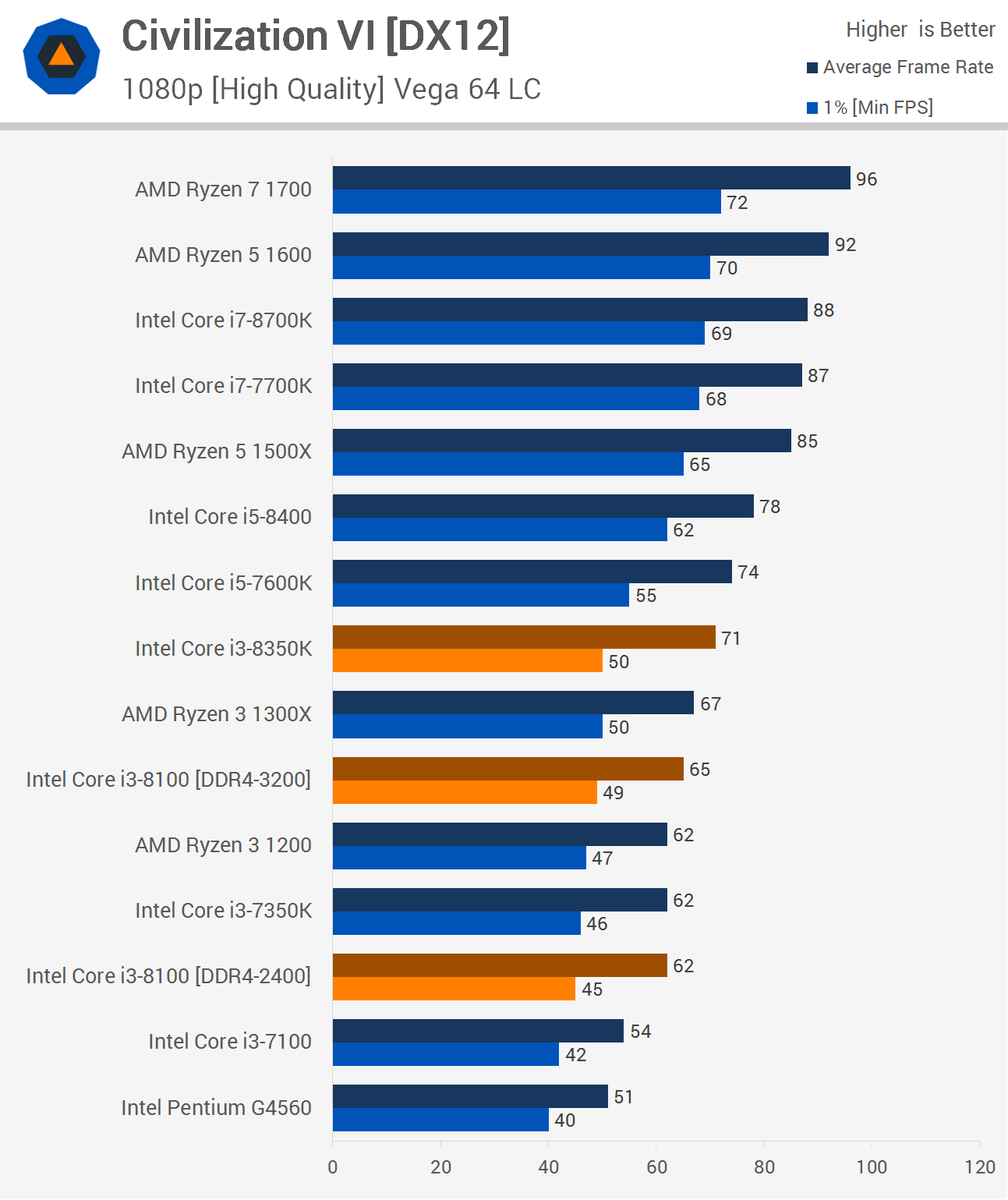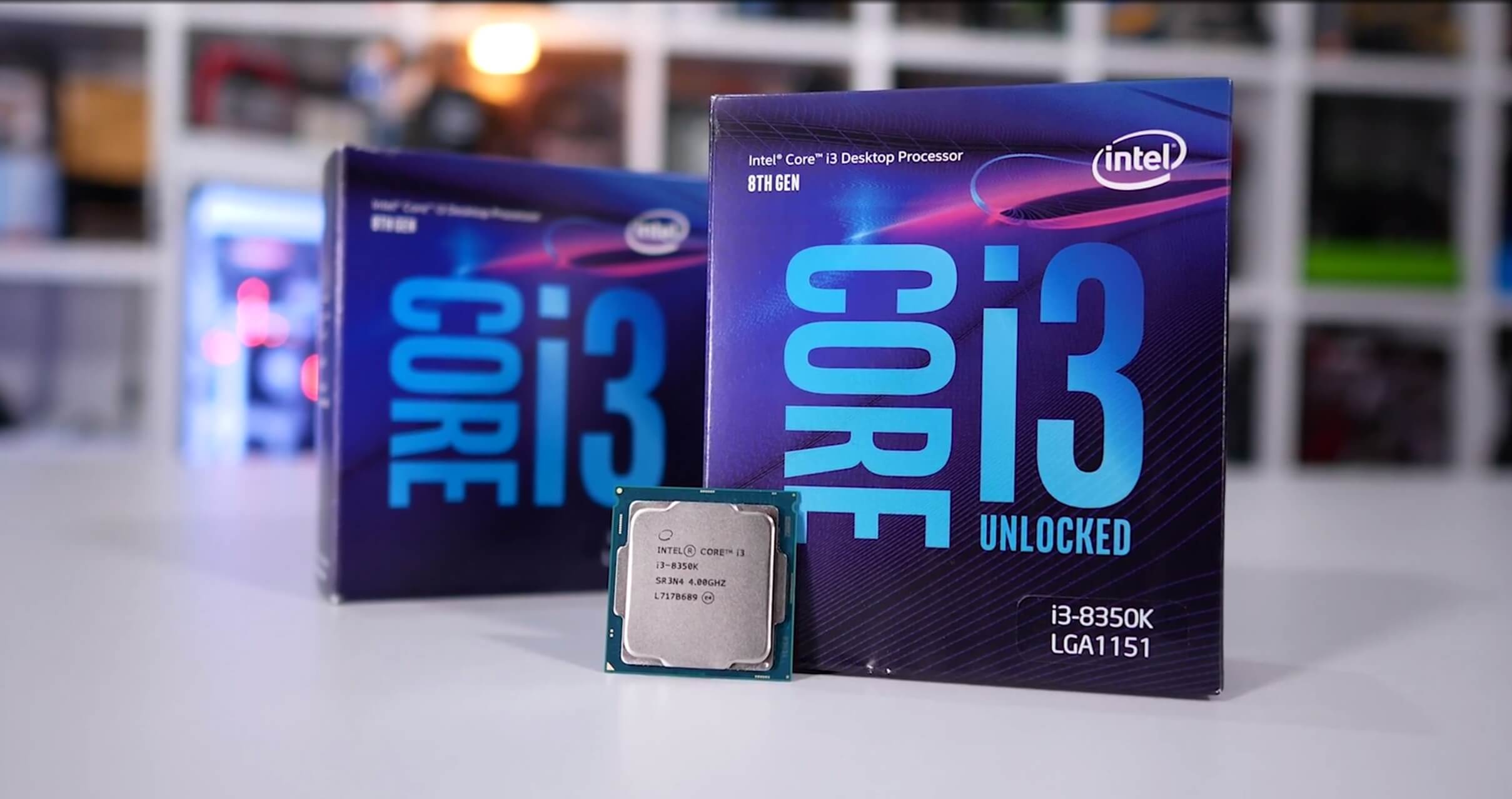Gaming Performance
Please note all testing was conducted using Vega 64 Liquid Cooled since we're mostly focusing on DX12 performance. My upcoming Core i5-8400 review will again feature both the GTX 1080 and Vega 64 graphics cards. Anyway when testing with Battlefield 1 we see a few interesting things.

Starting with the Core i3-8100 we see that the faster DDR4-3200 memory boosts the average frame rate by 10% and that was enough to overtake the stock R5 1500X. Even with the DDR4-2400 memory the 8100 was still 8% faster than the Ryzen 3 1300X. Meanwhile the higher clocked 8350K does well, maxing out the Vega 64 Liquid Cooled graphics card at 1080p using the ultra quality settings.

Next up we have Ashes of the Singularity: Escalation and this time the Ryzen 3 1300X gets dominated by the Core i3-8100. Even with the slower DDR4-2400 memory the 8100 was 21% faster than the R3 1300X. Once we paired the 8100 with DDR4-3200 it was able to match the R5 1500X. The 8350K streaked further ahead and was able to match the heavy batch result of the Ryzen 5 1600 and Ryzen 7 1700 CPUs.

When testing with Civilization the Core i3-8100 with the faster DDR4-3200 memory was 5% faster for the average frame rate and 9% for the minimum. So while using DDR4-2400 memory will limit the 8100 to Ryzen 3 1200 like performance, faster memory does give it an edge, at least when compared to Ryzen's out of the box performance. The R3 1300X was still slightly faster and not much slower than the 8350K in this game. Meanwhile the R5 1500X was considerably faster than the 8350K.

Finally we have F1 2017 and there the Core i3-8100 using DDR4-2400 memory was 13% faster than the Ryzen 3 1300X and just 3% slower than the R5 1500X. Increasing the memory speed allowed the 8100 to beat the R5 1500X by a convincing 7% margin.
The 8350K was a further 5% faster as it matched the 7600K but that meant it was still 9% slower than the Core i5-8400.
